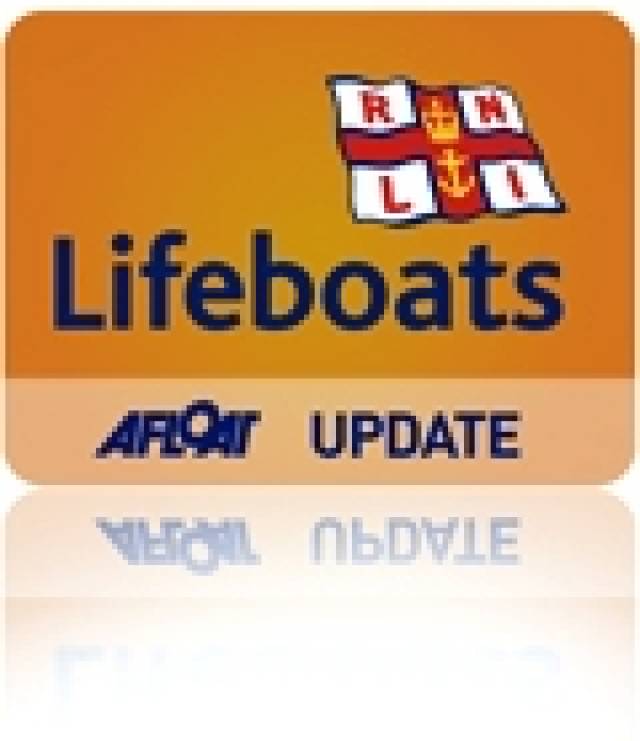#RNLI - It was a busy June bank holiday weekend around the country for RNLI lifeboats in West Cork, Mayo and the Midlands.
On Sunday afternoon, Baltimore RNLI assisted four people after their yacht got into difficulty a mile south of Mizen Head.
The 32ft yacht with four people on board had been propped by a pot buoy immobilising her in the water. The alarm was raised at 10.41am and lifeboat the Alan Massey was launched minutes later.
A local RIB, which had commenced towing, passed the tow to the lifeboat and the yacht was then taken to the safety of Crookhaven Pier.
This was the second call out this week for Baltimore RNLI. On Thursday last three men were rescued when their punt overturned near Horse Island.
Later on Sunday, Achill Island RNLI in Co Mayo brought a distressed fishing vessel with seven people on board to safety.
The volunteer lifeboat crew was requested to launch at 4.50pm to assist a small fishing vessel in the vicinity of Clew Bay and close to Clare Island. The vessel had encountered engine problems and was unable to return to port.
The boat and its crew of seven were subsequently towed safely to Curraun harbour by the Achill Island RNLI lifeboat.
Speaking after, Achill Island RNLI lifeboat operations manager Tom Honeyman said: "The presence of thick fog surrounding the vessel meant that great care was needed in the rescue and the fishing party of the vessel were delighted to return empty handed for a change."
Meanwhile in the Midlands, Lough Ree RNLI brought five people to safety in two call-outs over the weekend.
On Friday 31 May the volunteer crew was requested to launch around 5pm following a report that a cruiser had ran aground north of Quaker Island.
A local fisherman raised the alarm after spotting the cruiser on the rocks at the island located in the north end of Lough Ree raised the alarm.
The lifeboat crew managed to establish contact with the person on board the cruiser via mobile phone and he had confirmed that he had got lost and had ran aground. He reported that there was no water entering his boat. He was on his own but not injured.
The inshore lifeboat was launched and the crew was on scene at 5.30pm. It took the lifeboat 10 minutes to safely navigate its way through the rocky area to reach the casualty. The person on board the cruiser was taken to shore and arrangements were made for a specialist company to attend the scene to recover the cruiser.
Lough Ree RNLI was then launched on Sunday evening to assist a 26ft cruiser which had ran aground east of Green Island after sustaining engine failure.
The small cruiser with a family of four on board had lost engine power and had ran aground on the south east side of Lough Ree.
A crew launched the lifeboat at 8.40pm and arrived on scene 10 minutes later. After one of the lifeboat crew had carried out an assessment of the causality vessel, the decision was made to make an attempt to pull the vessel from the rocks, which the lifeboat was successfully able to complete.
Once the lifeboat had the vessel in deep water, a tow was set up and the casualty vessel was taken to Quigleys Marina in Athlone.
It marked the continuation of a dramatic week for the Lough Ree crew, after six were rescued from a sinking cruiser on the lough last Tuesday 28 May.































































